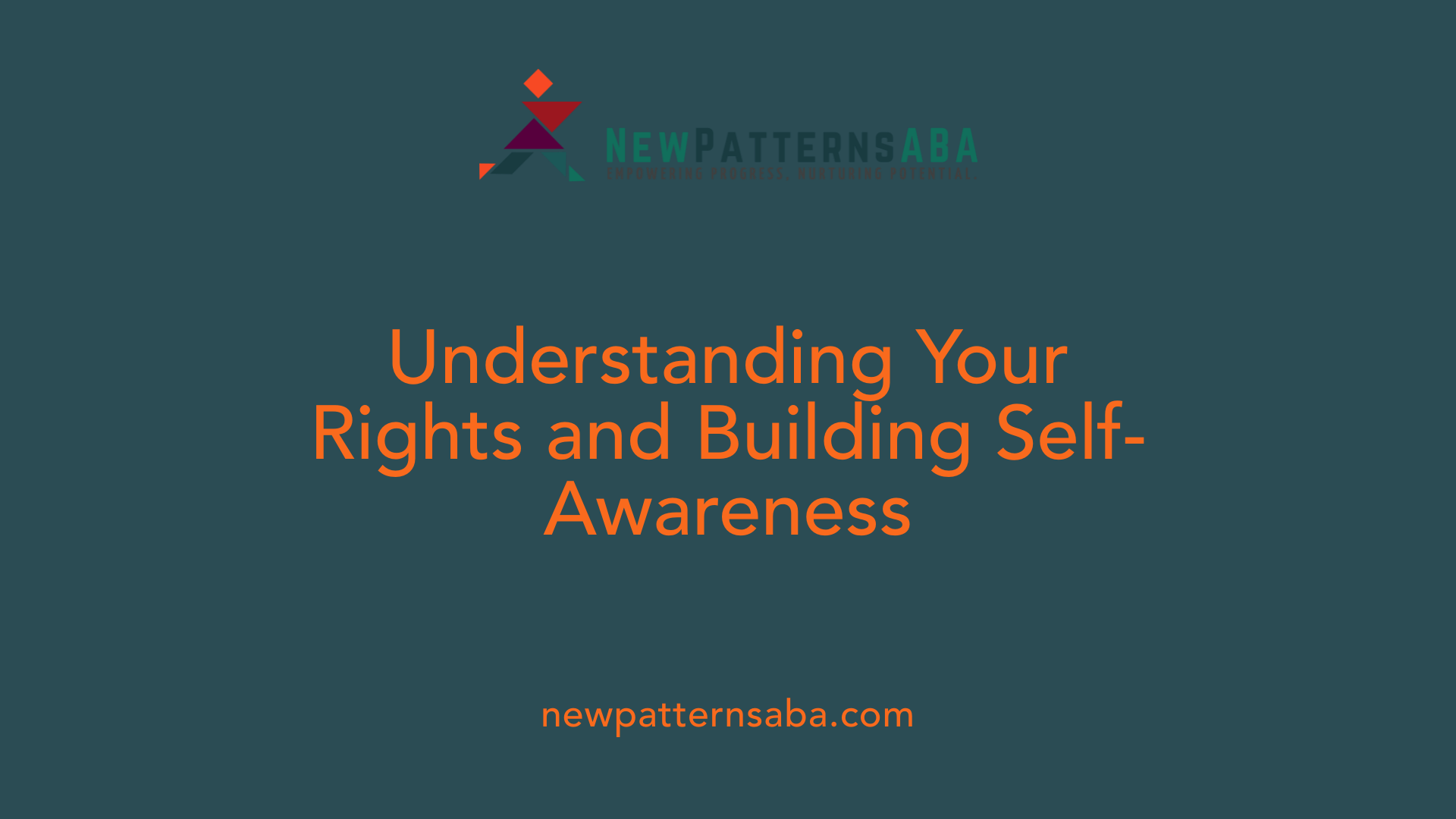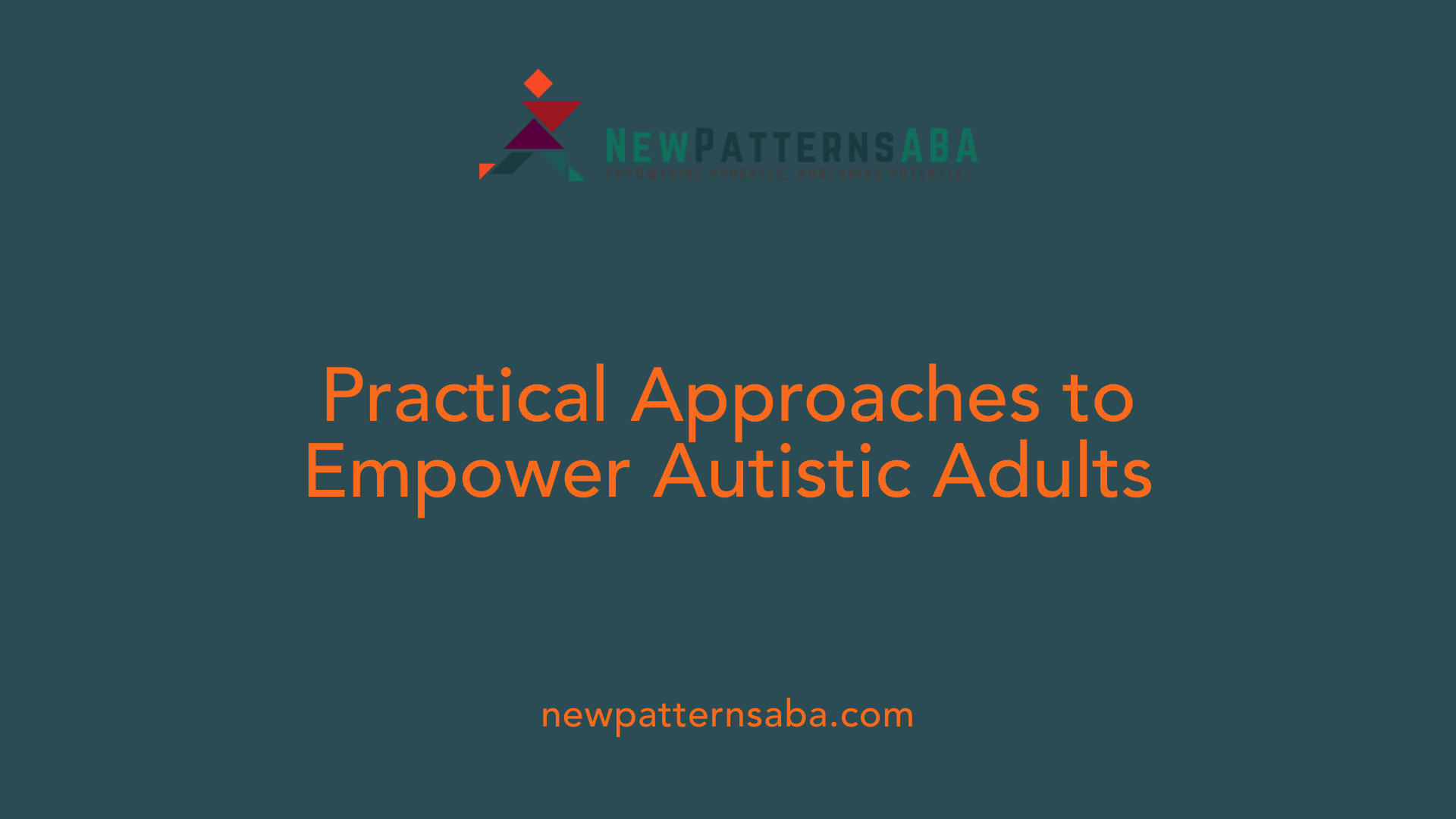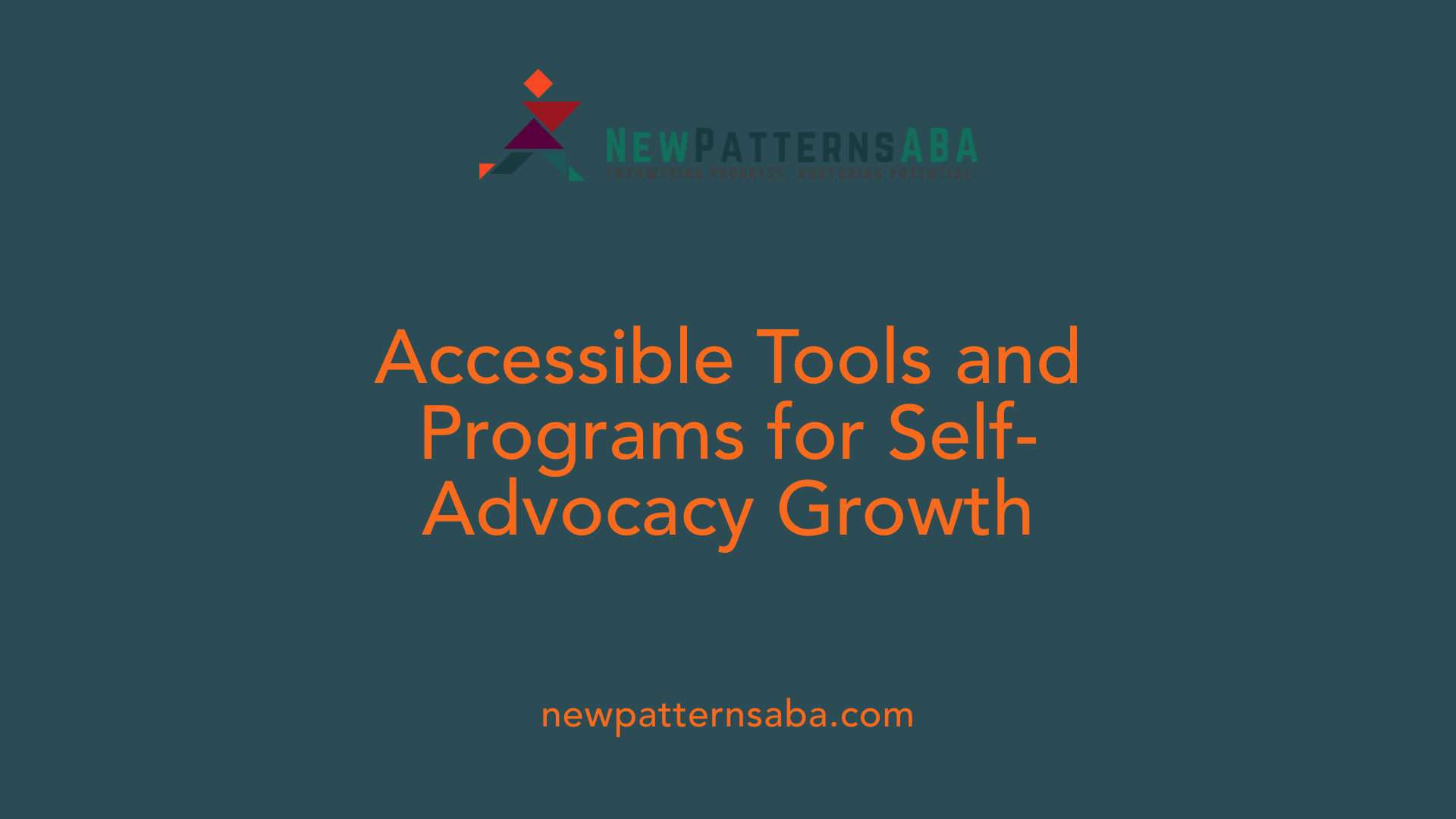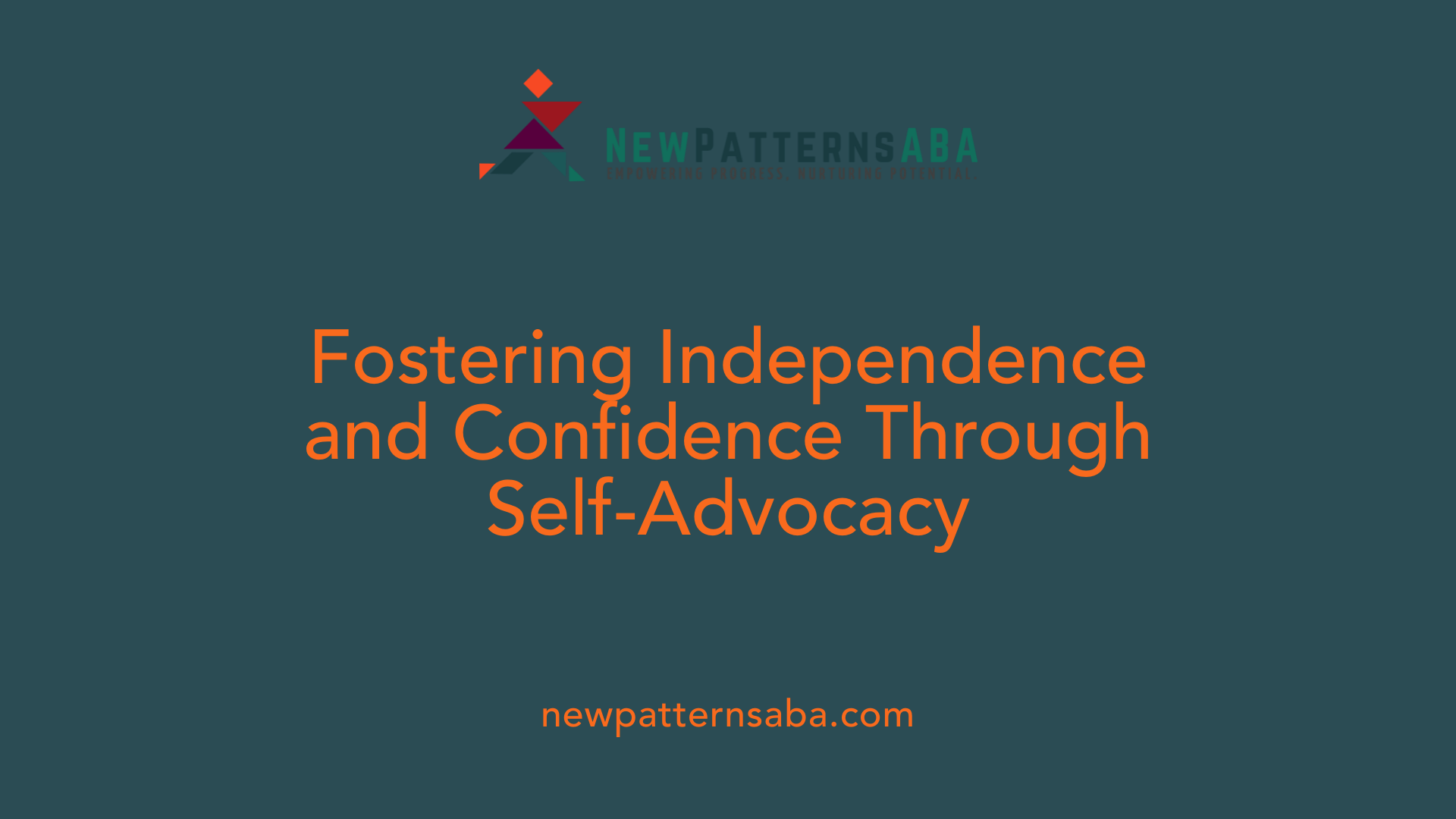Understanding the Significance of Self-Advocacy for Independence
Self-advocacy plays a pivotal role in enhancing the lives of autistic adults by enabling them to communicate their needs, rights, and preferences effectively. This vital skill fosters not only independence but also a stronger sense of self-determination, allowing autistic individuals to navigate various aspects of life — from employment and healthcare to personal relationships and community involvement. The development of self-advocacy skills is essential for addressing societal misunderstandings and reducing discrimination, ultimately promoting social inclusion, personal fulfillment, and systemic change.
Fundamental Concepts of Self-Advocacy and Self-Determination

What are the core concepts and skills involved in self-advocacy and self-determination for autistic individuals?
Self-advocacy and self-determination are essential skills that help autistic adults navigate various areas of life confidently. Central to these concepts is an understanding of one's rights, including legal protections and available supports. Knowing these rights allows individuals to request accommodations at work, school, and healthcare settings effectively.
Developing self-awareness is equally important. This involves recognizing personal strengths, challenges, needs, and goals. Such self-knowledge forms the basis for making informed decisions and advocating for oneself in different contexts.
Mastering communication strategies plays a crucial role. This includes learning how to articulate needs clearly, whether through speech, writing, or alternative communication methods like AAC devices. Techniques like role-playing, visual tools, and practicing conversations help improve an individual’s ability to negotiate and explain their needs.
These skills support participation in important processes such as Individualized Education Program (IEP) meetings and workplace discussions. For example, understanding when and how to disclose information about one’s disability enables appropriate sharing of support needs.
Education and community involvement are vital in teaching these skills. Early education programs often use social stories, visual aids, and role-playing to bolster self-advocacy. Furthermore, connecting with community groups, peer mentors, and neurodivergent networks can provide practical examples and moral support.
By combining knowledge of rights, enhanced self-awareness, and effective communication, autistic individuals can advocate for necessary accommodations, access resources, and create an environment conducive to independence and personal well-being. Building these capabilities fosters confidence and ultimately promotes a positive sense of self-determination.
Strategies for Teaching Self-Advocacy Skills

What strategies can be used to teach self-advocacy skills to autistic adults?
Teaching self-advocacy to autistic adults involves a variety of effective approaches that focus on practical skill development and real-world application. Role-playing and scenario-based practice are core methods, allowing individuals to rehearse requesting accommodations, explaining needs, and engaging in respectful dialogue in a safe, controlled environment. These activities help improve communication strategies and build confidence.
Curriculum development plays a critical role, especially when integrated into formal education, job training, and community programs. Structured lessons that cover understanding personal needs, legal rights, and available supports equip autistic adults with the knowledge necessary for effective advocacy. For example, programs created by the Autistic Self Advocacy Network and similar organizations provide tailored content that fosters independence.
Support networks are essential for reinforcing self-advocacy skills. Connecting individuals with peer mentors, community groups, and neurodiversity-affirming professionals promotes ongoing learning and confidence. These relationships serve as platforms where autistic adults can practice advocacy, seek advice, and share experiences.
Furthermore, revisiting the Individualized Education Plan (IEP) process and engaging in personal goal setting are important strategies. These activities foster self-determination and help individuals understand how to articulate their needs in various settings—be it employment, education, or healthcare.
Incorporating these approaches into community programs, workshops, and everyday routines helps embed self-advocacy as a natural part of life, empowering autistic adults to act confidently and effectively in advocating for themselves in all aspects of their lives.
| Strategy | Description | Purpose |
|---|---|---|
| Role-playing and scenario-based practice | Simulated communication situations to develop assertiveness and clarity | Builds communication skills and confidence |
| Curriculum development within formal education | Including lessons on rights, supports, and needs | Educates and prepares for independence |
| Support networks and community involvement | Peer mentorship, community groups, collaboration with professionals | Reinforces skills and provides ongoing support |
| Revisiting IEP and goal-setting | Engaging in planning processes early and often | Promotes self-determination and advocacy |
Overall, combining tailored training, experiential practice, and community support fosters meaningful self-advocacy skills, enabling autistic adults to navigate their environments with greater independence and confidence.
Resources and Curricula Supporting Self-Advocacy Development
 Are there specific resources or curricula available for developing self-advocacy skills in autistic adults?
Are there specific resources or curricula available for developing self-advocacy skills in autistic adults?
Yes, a variety of targeted tools and programs exist to bolster self-advocacy abilities among autistic adults. These resources are designed to enhance autonomy, self-awareness, and confidence in navigating societal systems.
One notable example is the Self-Advocacy Strategy (SAS), which offers structured approaches to help individuals understand their rights and communicate effectively. Organizations like Autism NOW and the Autistic Self Advocacy Network (ASAN) have developed comprehensive curricula tailored for various stages of life and learning preferences.
Online modules and virtual workshops provide accessible opportunities for learning about legal rights, healthcare, housing options, and community involvement. These educational materials often include practical exercises, role-playing scenarios, and interactive content to reinforce skills.
Support materials such as toolkits focus on understanding supported decision-making, a vital legal framework that promotes independence while ensuring appropriate safeguards. Other resources address advocacy in relationships and issues specific to LGBTQ+ communities, emphasizing respect, boundaries, and self-respect.
Educational guides frequently include step-by-step instructions on how to articulate needs clearly, ask for accommodations, and handle negotiations effectively. Many resources are designed to meet diverse learning needs, utilizing visual aids, written instructions, and adaptable formats.
Access to these curricula and tools empowers autistic adults to advocate for themselves confidently, whether in healthcare, employment, housing, or personal relationships. Continuous engagement with these resources supports lifelong development of advocacy skills, contributing to better outcomes and greater independence.
Core Skills and Concepts in Self-Advocacy and Self-Determination

What are the core concepts and skills involved in self-advocacy and self-determination for autistic individuals?
Self-advocacy and self-determination are vital skills that empower autistic adults to navigate various aspects of life independently. At their core, these concepts involve a deep understanding of personal rights, needs, strengths, and goals.
A fundamental component is awareness of legal protections and rights, such as those under the Americans with Disabilities Act (ADA) and the Individuals with Disabilities Education Act (IDEA). These laws outline the supports and accommodations available to help individuals succeed in educational and work environments.
Developing self-awareness is another critical aspect. This process involves recognizing one’s own capabilities, challenges, personal preferences, and future aspirations. This knowledge can be gained through self-reflection, experiential learning, and support from professionals or peer groups.
Effective communication skills are essential for expressing needs, seeking help, and negotiating accommodations. Techniques like requesting assistance politely, clearly articulating one’s reasons, and practicing dialogue through role-playing or social stories can significantly enhance confidence.
Disclosure strategies are also crucial, as sharing information about one’s disability must be done thoughtfully—knowing when, how, and with whom to share details can influence access to support without feeling exposed.
Teaching these core skills can be supported through visual aids, social stories, and practical exercises that simulate real-life scenarios. Such methods help autistic individuals become confident advocates for themselves, actively participating in decisions that affect their lives. Ultimately, mastering these skills fosters greater independence, improves quality of life, and prepares individuals for future challenges.
Research-Based Effective Approaches to Teaching Self-Advocacy
Studies on teaching self-advocacy skills to autistic adults highlight several effective strategies rooted in evidence-based practices. One prominent approach involves structured curricula that focus on key aspects such as self-awareness, communication skills, and empowerment. These curricula often include role-playing, modeling, and practice exercises to help individuals articulate their needs and negotiate accommodations confidently.
Additionally, peer mentoring programs play a vital role by providing social learning opportunities. These programs enable autistic adults to learn from others' experiences, build social capital, and develop practical advocacy skills in a supportive environment.
Early and ongoing education, particularly through frameworks established by laws like the Individuals with Disabilities Education Act (IDEA), are crucial. These laws support teaching self-disclosure, understanding legal rights, and requesting accommodations during school years, laying a foundation for success in higher education and employment.
Community involvement enhances self-advocacy development further. Participation in autism-focused groups, advocacy organizations, and community-based activities strengthens resilience, social participation, and overall quality of life. It also offers real-world contexts for practicing advocacy skills.
Involving autistic individuals in designing intervention programs ensures that approaches are relevant and respectful. Collaborative development fosters engagement, trust, and more effective outcomes.
Overall, integrating these evidence-based strategies—structured education, peer support, early intervention, and community engagement—promotes independence, boosts self-confidence, and nurtures a sense of agency among autistic adults.
Self-Advocacy as a Pathway to Autonomy and Positive Adjustment

How does self-advocacy contribute to autonomy and positive adjustment in autistic adults?
Self-advocacy plays a vital role in helping autistic adults achieve greater independence and develop a positive outlook on their lives. It involves understanding one’s needs, strengths, and rights, and then actively communicating and negotiating for necessary supports and accommodations.
When autistic adults build skills like self-awareness, they better understand their personal goals, co-occurring conditions, and what helps them thrive. Support awareness, such as knowledge of programs and legal rights like those under the Americans with Disabilities Act, empowers them to access resources and request accommodations confidently. This ability to advocate for oneself fosters a sense of control over one’s life, which is essential for independence.
Strong self-advocacy skills contribute to improved self-confidence and self-esteem. As individuals learn to articulate their needs, whether in educational settings like college, workplaces, or personal relationships, they develop a clearer self-identity and greater resilience. This resilience helps them navigate challenges effectively, enhancing overall mental health and well-being.
Research indicates that active self-advocacy correlates with higher levels of life satisfaction, stronger social bonds, and improved self-concept. Engaging in advocacy not only allows for immediate needs to be met but also encourages a proactive approach to life, fostering independence and a sense of agency.
By cultivating these skills through direct instruction, support from professionals, and community involvement, autistic adults can participate more fully in society. Ultimately, self-advocacy facilitates a positive adjustment by enabling them to manage their environments, advocate for their needs, and enjoy personal fulfillment—all essential components of a successful, autonomous life.
Fostering a Culture of Self-Advocacy for Lifelong Impact
Supporting the development of self-advocacy skills from early childhood through adulthood is essential for empowering autistic individuals to lead autonomous, fulfilling lives. Educational systems, support networks, and community initiatives must incorporate tailored curricula, practical training, and opportunities for real-world application. Through ongoing education, peer support, and community involvement, autistic adults can build confidence, resilience, and a strong sense of self. Emphasizing strengths-based approaches and involving autistic individuals in designing their own advocacy strategies ensures relevance and respect. Ultimately, fostering a culture that values self-advocacy transforms societal perceptions, promotes systemic change, and enriches the personal and social lives of autistic adults for generations to come.
References
- Practical Self-Advocacy Skills For Autism
- Self Advocacy
- Self-Advocacy Strategies for Neurodivergent Adults
- Research-Based Recommendations for Building Self ...
- The role of self-advocacy and self-determination in positive ...
- How to teach self advocacy to your student with disabilities
- A Guide on Self Advocacy





